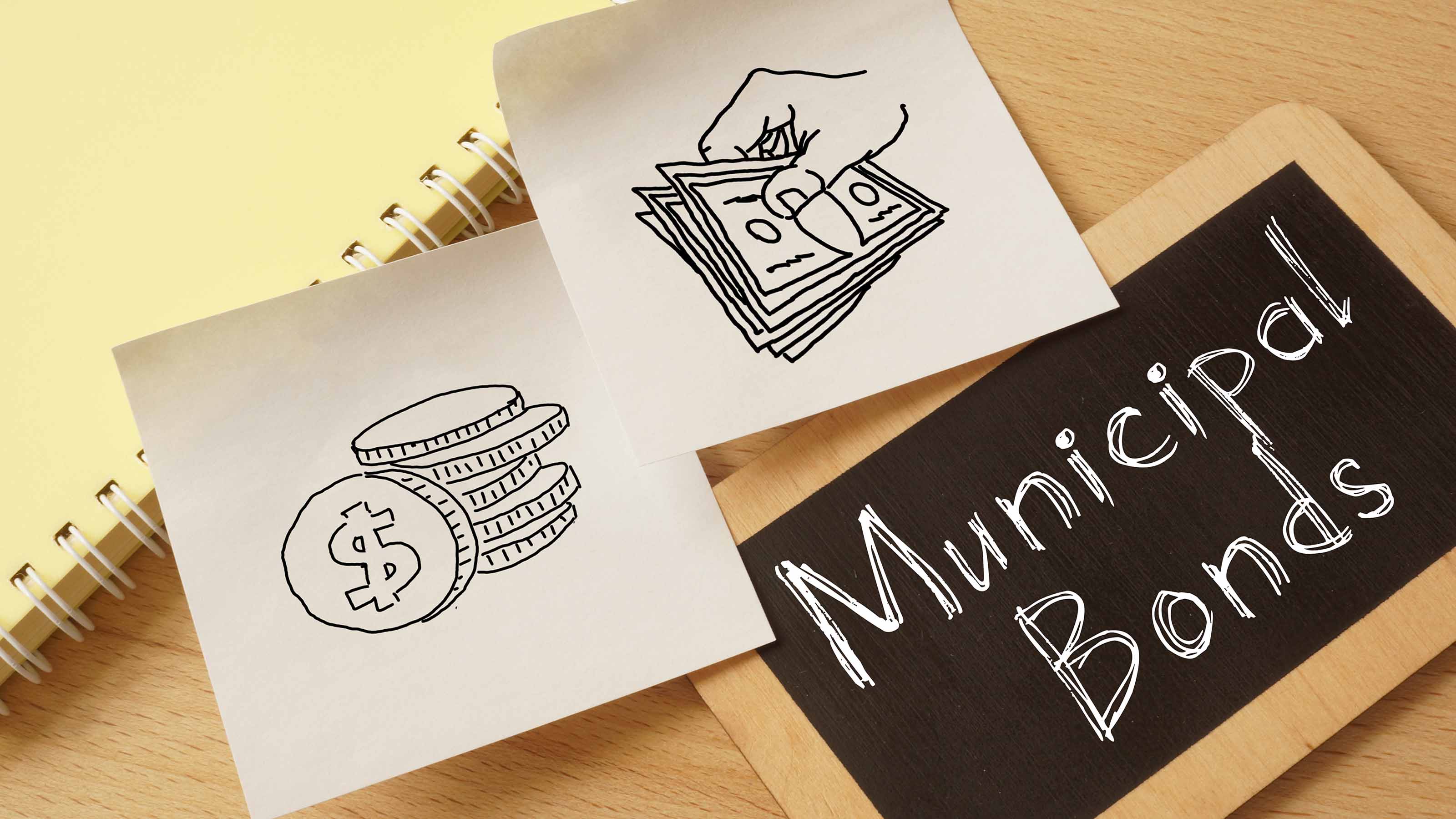Looking for Yield in Closed-End Funds
These income-producing funds are trading at a discount.


Profit and prosper with the best of Kiplinger's advice on investing, taxes, retirement, personal finance and much more. Delivered daily. Enter your email in the box and click Sign Me Up.
You are now subscribed
Your newsletter sign-up was successful
Want to add more newsletters?

Delivered daily
Kiplinger Today
Profit and prosper with the best of Kiplinger's advice on investing, taxes, retirement, personal finance and much more delivered daily. Smart money moves start here.

Sent five days a week
Kiplinger A Step Ahead
Get practical help to make better financial decisions in your everyday life, from spending to savings on top deals.

Delivered daily
Kiplinger Closing Bell
Get today's biggest financial and investing headlines delivered to your inbox every day the U.S. stock market is open.

Sent twice a week
Kiplinger Adviser Intel
Financial pros across the country share best practices and fresh tactics to preserve and grow your wealth.

Delivered weekly
Kiplinger Tax Tips
Trim your federal and state tax bills with practical tax-planning and tax-cutting strategies.

Sent twice a week
Kiplinger Retirement Tips
Your twice-a-week guide to planning and enjoying a financially secure and richly rewarding retirement

Sent bimonthly.
Kiplinger Adviser Angle
Insights for advisers, wealth managers and other financial professionals.

Sent twice a week
Kiplinger Investing Weekly
Your twice-a-week roundup of promising stocks, funds, companies and industries you should consider, ones you should avoid, and why.

Sent weekly for six weeks
Kiplinger Invest for Retirement
Your step-by-step six-part series on how to invest for retirement, from devising a successful strategy to exactly which investments to choose.
Fears of rising interest rates have beaten down the prices of closed-end funds, giving yield-oriented investors an opportunity to buy some attractive income-producing funds at a discount.
Because closed-end funds offer a fixed number of shares that trade on an exchange, their share prices can drift far from the per-share value of their portfolio holdings. That sets them apart from traditional mutual funds, which trade at the value of their underlying holdings.
In mid January, the average closed-end fund was trading at a 7.6% discount. That's a dramatic turnabout from late 2012, when the average fund traded at a slight premium. While a wide discount alone doesn't mean that a closed-end fund is a good buy, investors who take the time to understand a fund's strategy and risks can find some good bargains. "There's a lot of fundamental value in the market, particularly for longer-term, income-oriented, patient investors," says Anne Kritzmire, managing director at Nuveen Investments.
From just $107.88 $24.99 for Kiplinger Personal Finance
Become a smarter, better informed investor. Subscribe from just $107.88 $24.99, plus get up to 4 Special Issues

Sign up for Kiplinger’s Free Newsletters
Profit and prosper with the best of expert advice on investing, taxes, retirement, personal finance and more - straight to your e-mail.
Profit and prosper with the best of expert advice - straight to your e-mail.
Closed-end-fund discounts have widened steadily in recent years, largely because of jitters about Federal Reserve interest-rate hikes. Rising rates are troublesome for closed-end funds because many of these funds use leverage, or borrowed money, to boost returns. Rate increases raise the cost of leverage, eating into a fund's earnings and potentially forcing the fund to slash distributions.
To size up a fund's use of leverage, enter the fund's name in the quote box at Morningstar.com and look at the "total leverage ratio." A 20% leverage ratio, for example, indicates that for every $1 of investable capital, the fund gets 20 cents by borrowing money. Compare the fund's leverage ratio to its category peers. More highly leveraged funds will be more volatile. If you're an investor who checks a fund's share price every day, "maybe you shouldn't own a leveraged fund," says Cara Esser, senior analyst at Morningstar.
Don't assume that the fund with the highest distribution rate in its category is your best bet. If a fund's distribution rate is far higher than its competitors', that raises questions about how the fund is producing those payouts and whether it can sustain them. Some closed-end funds have paid seemingly generous distributions that actually consist largely of "return of capital" -- which means your initial investment is simply handed back to you in the form of a distribution. Click the "distribution" tab on the fund's page at Morningstar.com or CEFConnect.com to see what portion of the payout comes from income, capital gains and return of capital.
Also use sites such as Morningstar or CEFConnect to check the average dollar volume of fund shares that trade each day. Closed-end funds tend to be quite thinly traded, says Mariana Bush, analyst at Wells Fargo Advisors. To avoid problems buying and selling these funds, keep your investment under 10% of the fund's average daily volume, Bush says.
Choose a Conservative Fund
Conservative tax-sensitive investors may want to take a look at municipal closed-end funds, analysts say. Municipalities are generally in good health, and they're not issuing a lot of new debt right now. That, combined with investors' steady demand for tax-free income, creates "a supply-demand story tha's very favorable to investors," Esser says. One solid choice: Nuveen Municipal Value (symbol NUV), which has a 3.8% distribution rate and generally avoids using leverage.
With markets growing more volatile in recent months, investors might also want to consider "covered-call writing" funds, which generate income by selling call options on stocks they hold. As the market gyrates, Kritzmire says this strategy will "clip the upside and cushion the downside." Most covered-call-writing funds do not use leverage.
One such fund that Bush likes is BlackRock Enhanced Equity Dividend (BDJ), which invests in dividend-paying stocks and sells call options on some of its holdings. The unleveraged fund offers a distribution rate of 8.1%. And it's trading at a 14.6% discount, a bit wider than its three-year average discount of 11.3%.
Profit and prosper with the best of Kiplinger's advice on investing, taxes, retirement, personal finance and much more. Delivered daily. Enter your email in the box and click Sign Me Up.

-
 Dow Leads in Mixed Session on Amgen Earnings: Stock Market Today
Dow Leads in Mixed Session on Amgen Earnings: Stock Market TodayThe rest of Wall Street struggled as Advanced Micro Devices earnings caused a chip-stock sell-off.
-
 How to Watch the 2026 Winter Olympics Without Overpaying
How to Watch the 2026 Winter Olympics Without OverpayingHere’s how to stream the 2026 Winter Olympics live, including low-cost viewing options, Peacock access and ways to catch your favorite athletes and events from anywhere.
-
 Here’s How to Stream the Super Bowl for Less
Here’s How to Stream the Super Bowl for LessWe'll show you the least expensive ways to stream football's biggest event.
-
 What Fed Rate Cuts Mean For Fixed-Income Investors
What Fed Rate Cuts Mean For Fixed-Income InvestorsThe Fed's rate-cutting campaign has the fixed-income market set for an encore of Q4 2024.
-
 The Most Tax-Friendly States for Investing in 2025 (Hint: There Are Two)
The Most Tax-Friendly States for Investing in 2025 (Hint: There Are Two)State Taxes Living in one of these places could lower your 2025 investment taxes — especially if you invest in real estate.
-
 The Final Countdown for Retirees with Investment Income
The Final Countdown for Retirees with Investment IncomeRetirement Tax Don’t assume Social Security withholding is enough. Some retirement income may require a quarterly estimated tax payment by the September 15 deadline.
-
 Dividends Are in a Rut
Dividends Are in a RutDividends may be going through a rough patch, but income investors should exercise patience.
-
 Municipal Bonds Stand Firm
Municipal Bonds Stand FirmIf you have the cash to invest, municipal bonds are a worthy alternative to CDs or Treasuries – even as they stare down credit-market Armageddon.
-
 High Yields From High-Rate Lenders
High Yields From High-Rate LendersInvestors seeking out high yields can find them in high-rate lenders, non-bank lenders and a few financial REITs.
-
 Time to Consider Foreign Bonds
Time to Consider Foreign BondsIn 2023, foreign bonds deserve a place on the fringes of a total-return-oriented fixed-income portfolio.
-
 The 5 Best Actively Managed Fidelity Funds to Buy and Hold
The 5 Best Actively Managed Fidelity Funds to Buy and Holdmutual funds Sometimes it's best to leave the driving to the pros – and these actively managed Fidelity funds do just that, at low costs to boot.